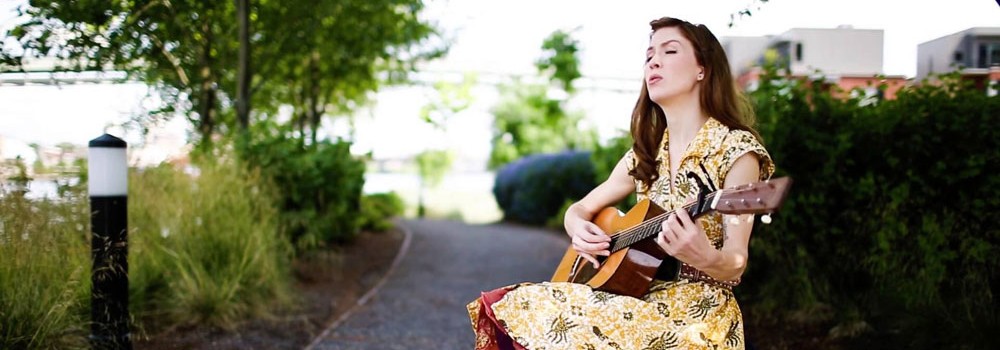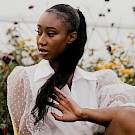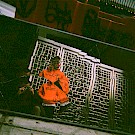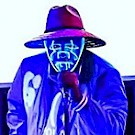When you ask Joy Pearson about home and about her music, the answers fold together as neatly as hands clasped in prayer. The agnostic daughter of a pastor father who had her memorize poetry and write songs as a child, Pearson’s sound is an amalgam of the soundtrack from a musical family.
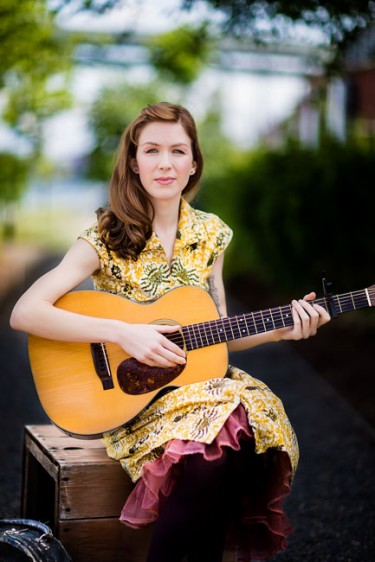 Photo by Jerrad Miller“I grew up in the northwest corner of Montana near Glacier at the foothills of the Rocky Mountains. I looked one way and saw those mountains; if I looked the other way, I could see stars all the way to the horizon,” Pearson describes. “It was a really stark contrast. I remember flat desert plains and roaring mountains. Even the music I listened to was like Montana—bluegrass, country, gospel and soul.”
Photo by Jerrad Miller“I grew up in the northwest corner of Montana near Glacier at the foothills of the Rocky Mountains. I looked one way and saw those mountains; if I looked the other way, I could see stars all the way to the horizon,” Pearson describes. “It was a really stark contrast. I remember flat desert plains and roaring mountains. Even the music I listened to was like Montana—bluegrass, country, gospel and soul.”
Willie Nelson, Hank Williams, Johnny Cash, Andraé Crouch and CeCe Winans were on heavy rotation and, sometimes, danceable pop like Whitney Houston—who by that time had crossed over from the land of gospel.
“That contrast became a part of me growing up and in older versions of me, other places in my life and in my personality—but especially in my own music. I have these really high parts—things that I love—and I have these low plains: sad music. My parents wanted me to experience the full range of emotions through music at a very young age,” she says.
Pearson competed as a classical vocalist in her teenage years but was still expected to sing in church on Sundays. Her songwriting craft was cultivated in classical music during the week, country music with friends on Saturdays at the local street and country fairs, and gospel music on Sundays. Pearson broke her own heart on Michael Martin Murphey’s “Geronimo’s Cadillac” and “Wildfire,” songs about displaced Native Americans and a woman calling for her snow-blind horse lost in a winter blizzard.
But, it was women who could break your heart with a sad song and a good story who informed her sound—enduring songwriters and singers like Reba McEntire, Dolly Parton, Patsy Cline, Loretta Lynn, Emmylou Harris and Gillian Welch. When Pearson was 15, she boarded her first flight and took her first trip to the South, landing in Georgia with “Oh Atlanta” by Alison Krauss playing on her CD Walkman. “That song was instrumental in me knowing that I wanted to be a musician forever—knowing that I wanted to be a vocalist and that it could be anything I wanted it to be,” Pearson says.
Pearson’s first seven-track EP, Breaker, is out this May with help from Portland pop musician Adam Brock recording, mixing and producing. She cites Willie Nelson’s Red Headed Stranger as an example of how to communicate a singular story in a collection of songs—in Willie’s case, the tale of a murderous, fugitive preacher who goes mad (which was humorous to Pearson at the time, as a young pastor’s daughter).
 EP artwork by Glenn LidellBreaker is a concept album of a similar format. Borrowed poetics from writers and singers flow in among her songs, tumbling them smooth and making them her own. It’s based on mostly true stories handed down from Pearson’s grandmother about a levee break and flood that hits a small town in Montana. In these beautiful folk ballads, the river eats the town, and in the wake of destruction, wives and lovers call out to the lost, making it hard for the living left behind to move on.
EP artwork by Glenn LidellBreaker is a concept album of a similar format. Borrowed poetics from writers and singers flow in among her songs, tumbling them smooth and making them her own. It’s based on mostly true stories handed down from Pearson’s grandmother about a levee break and flood that hits a small town in Montana. In these beautiful folk ballads, the river eats the town, and in the wake of destruction, wives and lovers call out to the lost, making it hard for the living left behind to move on.
The voice of the river is the first voice heard on Breaker—also the opening, title track. The river is a wild, winding woman, unapologetic of the fury she unleashes and the lives she claims. She comes in thudding like a heart, rumbling like the threat of approaching thunder, a shaman’s drum, a watery, sloshing dirge. On “Breaker” (listen below), Pearson lifts and twists lines from “The Brook” by Alfred Lord Tennyson: “I bumble chatter as I flow, I go just where I want to, men will come and men will go, but I go on forever.” For Pearson, the stories from her grandmother “never got any truer but they certainly got better,” and here they are, encapsulated on Breaker.
Pearson and her boyfriend, Jacob Miller (and the Bridge City Crooners), spend their time as mad muses. Miller, another local roots musician playing West Coast ragtime, jazz and blues, collaborates and performs with Pearson when they’re not busy one-upping each other by writing sad country songs. Quick on the heels of Breaker, Pearson is in the process of writing and recording her follow-up EP, Mender. She has great hopes for Mender as a suitable redemption piece. And it’s a righteous order of operations: First we break, then we mend.
Believing that the best kind of music contains a little bit of preaching in it—in those gentle ways—her personal history whispers and shimmers through in lyrical strains like the peaks and valleys of her home state, ravaged by wind and waters with burning stars blanketing above. There’s a little bit of gospel, a little bit of rock and roll, some old-time religion, and stories of loss and heartbreak in a warbling moan as hard and as soothing as a melancholy moonshine. Joy Pearson’s music is sweet and strong—like ginger and whiskey, in just the right doses.

